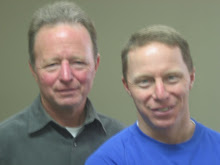An Open Discussion
Differences between Callout and Web-based Music Surveys
Why are the results so different?
Part One – We need answers!The programming minds that steer the content of the radio station are in a music meeting. It’s decision time. Your Callout research says a song on the playlist is negative and driving listeners away. But your Web survey says listeners like the song. Which one is right? Regardless of how you deal with these dilemmas, you might also ask yourself, “Why?” Why does Callout data look different from Web research data? There are many opinions around Radio, but little has been studied or written on the subject.
We think this topic is worth exploring and talking about. Kelly Music Research is taking a closer look at Callout and Web surveys. We also want to create an open forum among our broadcasting brethren and encourage your participation. In Radio we have a wealth of brainpower among programmers, consultants and researchers. Collectively, we can certainly create an interesting conversation. And who knows… maybe discovery. Over the past several months we’ve begun laying the groundwork for this conversation. We’ve done parallel music tests using different methods and approaches. Many of you have actual experiences we hope you’ll share. This is an open conversation that we hope will be informative and productive. Incidentally – full disclosure - Kelly Music Research does both traditional telephone callout and we have a computer survey tool. We are also funding this project ourselves. There is no third party interest. We don’t have an agenda other than to facilitate greater understanding and perhaps discovery for the benefit of Radio.
Responding to the ever changing desires of listeners is tricky but essential in a competitive marketplace. Traditionally, Callout has been a potent and critical weapon in the arsenals of America’s most successful radio stations that play current music. Callout is not cheap. Many programmers want Callout to be the very last tool to be stripped away in budget cuts. In competitive situations, PD’s and consultants feel that Callout can tip the scales. Success or failure. A bonus or a dismissal notice.
Like it or not, current economic conditions have forced Radio to rethink everything. Economic recovery will be gradual, so some stations are forced to consider less expensive tools. And Web research is cheaper. Web based research has not yet achieved the same level of credibility among programmers that Callout enjoys. Most programmers with the luxury of both still have more confidence in their Callout data. Some of those being forced to drop traditional Callout in favor of less expensive Web based research are lamenting their predicament and say things like, “Web data is not real research.” On the other hand, proponents of Web based research enjoy the ability to use a computer as the hook delivery and scoring apparatus. A computer will play the hooks for the respondent in higher audio fidelity than over the phone. The computer also allows for visuals such as pictures and text display which can include artist name, song title, CD cover, etc. And on the computer, the survey can be done at a time convenient to the listener. Conversely, most telephone Callout research is conducted weekdays between 6pm and 9pm without mention of artists or titles. Clearly, both methods have their limitations. And the use of certain elements could introduce bias that can influence the respondents and affect song scoring.
Particularly now, broadcasters are hopeful for solutions that provide both reliability and affordability. Unreliable data is ultimately more costly if it makes the station more vulnerable and sacrifices audience, ratings and revenue. In this discussion we will research the research. In the coming weeks, our field studies will focus on sample recruitment, scoring apparatus and potential biases that might affect test results. As of this writing, our field work is continuing in markets across the country. We’re not finished yet, however what we’ve seen so far is very interesting. Whether you are new to the business or a grizzled veteran, if you have an interest in programming or research, we believe you will find this discussion informative and thought provoking. Chime in with your own thoughts, experiences and points of view. Your participation in this conversation is strongly encouraged. Radio will benefit.
